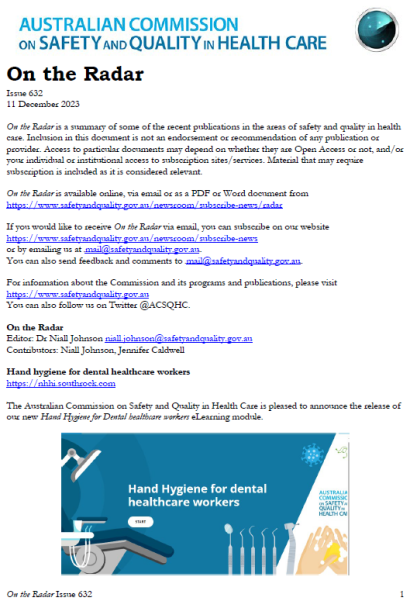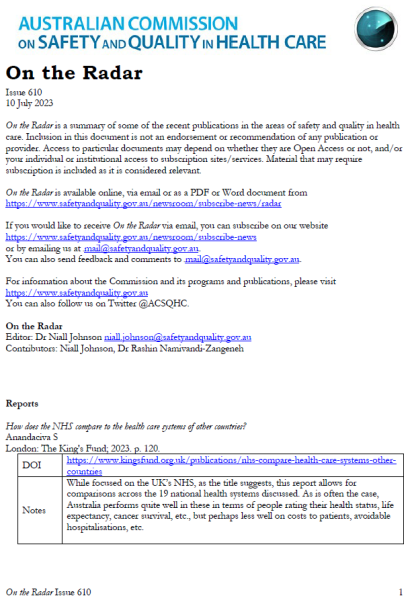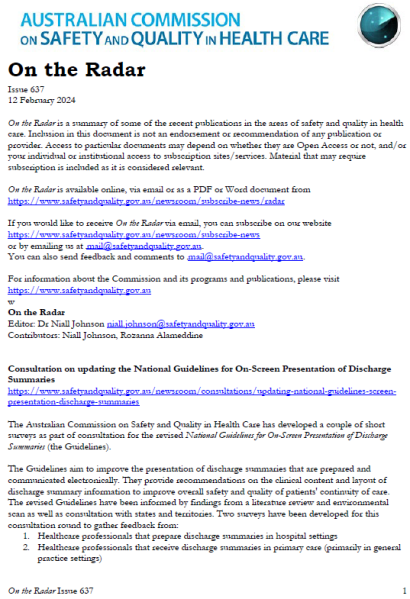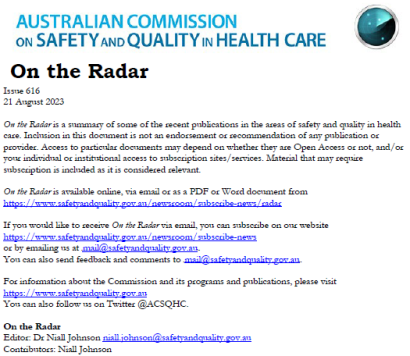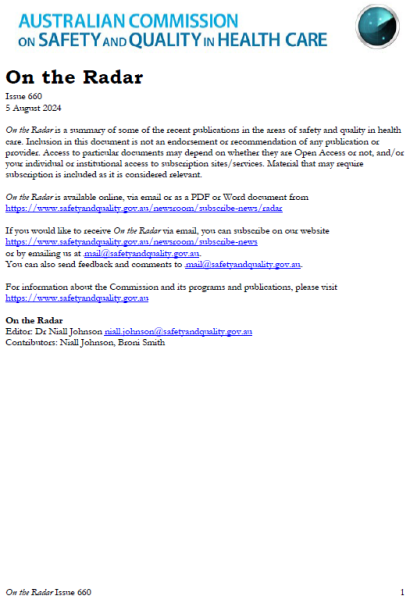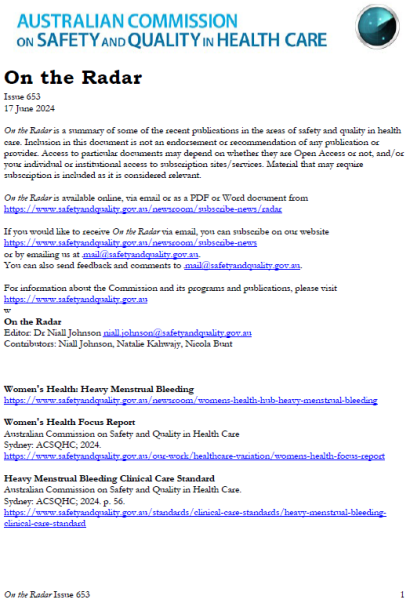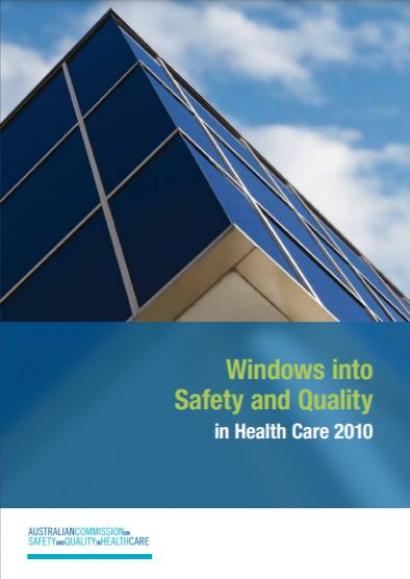Cognitive impairment in hospital is often associated with adverse outcomes, such as falls. For some people with cognitive impairment and for their carers and families, a hospital stay can be a negative experience. Staff may struggle to provide the right care in the absence of appropriate education and training.
Leaders of a health service organisation establish and maintain systems and processes to support clinicians to deliver comprehensive care, and establish and maintain systems to prevent and manage specific risks of harm to patients during the delivery of health care. The workforce uses the systems to deliver comprehensive care and manage risk.
Minimising restrictive practices: restraint
Based on advice, feedback and discussions with clinical experts and health services from across Australia, the Commission has compiled a list of FAQs and resources that may assist health services in the prevention and reduction of hospital-acquired complications (HACs).
Explore these resources and share your feedback.
Partnering with consumers
To focus care on patients' needs, and determine the most appropriate model of care for the patient, it is important that health services identify and assess patients' risk of harm.
Patients at risk of specific harm are identified, and clinicians deliver targeted strategies to prevent and manage harm.
Correct identification and procedure matching
Quality statement 5 - Cataract Clinical Care Standard
A patient is prioritised for cataract surgery according to clinical need. Prioritisation protocols take into account the severity of the patient’s visual impairment and vision-related activity limitations, the potential harms of delayed surgery, any relevant comorbidity and the expected benefits of surgery.

